Hyundai Kona vs VW T-Cross - Differences and prices compared
Compare performance (218 HP vs 150 HP), boot space and price (23100 £ vs 21400 £ ) at a glance. Find out which car is the better choice for you – Hyundai Kona or VW T-Cross?
Costs and Efficiency:
Looking at overall running costs, both models reveal some interesting differences in everyday economy.
VW T-Cross has a barely noticeable advantage in terms of price – it starts at 21400 £ , while the Hyundai Kona costs 23100 £ . That’s a price difference of around 1663 £.
Fuel consumption also shows a difference: Hyundai Kona manages with 4.60 L and is therefore slightly more efficient than the VW T-Cross with 5.40 L. The difference is about 0.80 L per 100 km.
Engine and Performance:
Under the bonnet, it becomes clear which model is tuned for sportiness and which one takes the lead when you hit the accelerator.
When it comes to engine power, the Hyundai Kona has a noticeable edge – offering 218 HP compared to 150 HP. That’s roughly 68 HP more horsepower.
In acceleration from 0 to 100 km/h, the Hyundai Kona is hardly perceptible quicker – completing the sprint in 7.80 s, while the VW T-Cross takes 8.40 s. That’s about 0.60 s faster.
There’s also a difference in torque: Hyundai Kona pulls minimal stronger with 265 Nm compared to 250 Nm. That’s about 15 Nm difference.
Space and Everyday Use:
Cabin size, boot volume and payload all play a role in everyday practicality. Here, comfort and flexibility make the difference.
Both vehicles offer seating for 5 people.
In curb weight, VW T-Cross is minimal lighter – 1267 kg compared to 1370 kg. The difference is around 103 kg.
In terms of boot space, the Hyundai Kona offers slight more room – 466 L compared to 455 L. That’s a difference of about 11 L.
When it comes to payload, Hyundai Kona barely noticeable takes the win – 490 kg compared to 480 kg. That’s a difference of about 10 kg.
Who wins the race in the data check?
The Hyundai Kona holds a decisive overall lead in the objective data comparison.
This result only shows which model scores more points on paper – not which of the two cars feels right for you.
Costs and Consumption
View detailed analysis
Engine and Performance
View detailed analysis
Dimensions and Body
View detailed analysis

Hyundai Kona
Hyundai Kona
The Hyundai Kona wears its personality on the outside with bold styling and sprightly handling that turns city driving into something a little more fun than a commute. It blends practical space, modern tech and sensible running costs into a compact, stylish package — a smart pick if you want flair without paying luxury prices.
details



VW T-Cross
The VW T-Cross turns everyday practicality into a style statement, offering a roomy-feeling cabin, clever storage and playful design that suits town life and family duties alike. On the road it's composed and relaxed, rewarding buyers who want the raised seating and confident presence of an SUV without the weighty compromises.
details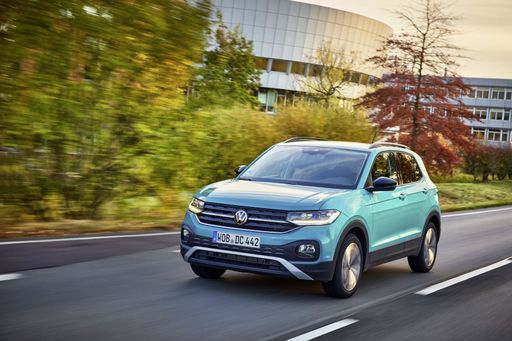
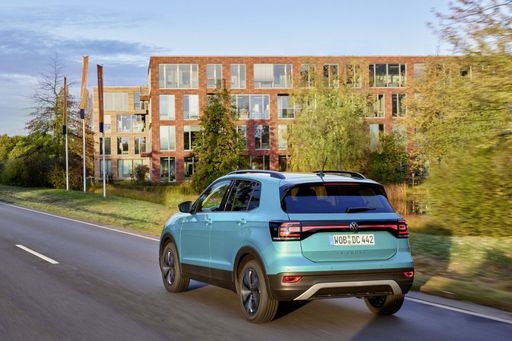
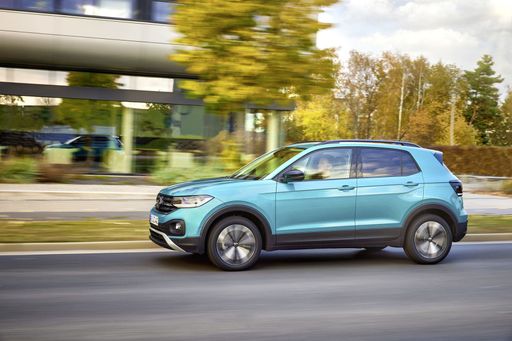
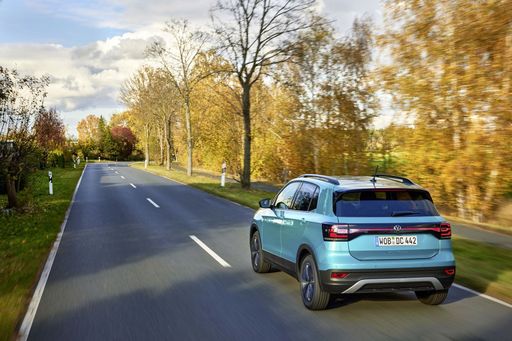
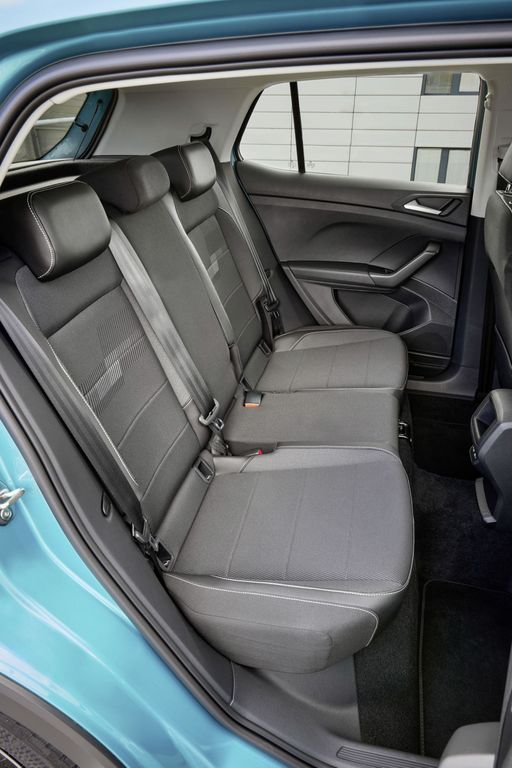
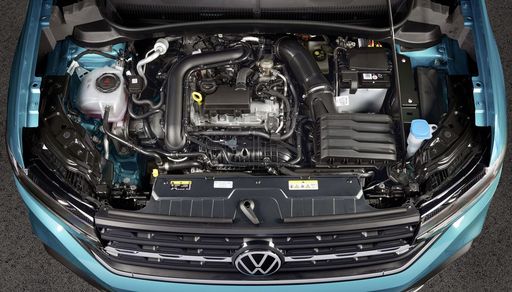
Costs and Consumption |
|
|---|---|
|
Price
23100 - 41600 £
|
Price
21400 - 32000 £
|
|
Consumption L/100km
4.6 - 7 L
|
Consumption L/100km
5.4 - 6 L
|
|
Consumption kWh/100km
14.6 - 16.8 kWh
|
Consumption kWh/100km
-
|
|
Electric Range
377 - 514 km
|
Electric Range
-
|
|
Battery Capacity
1.3 - 65.4 kWh
|
Battery Capacity
-
|
|
co2
0 - 163 g/km
|
co2
124 - 136 g/km
|
|
Fuel tank capacity
38 - 47 L
|
Fuel tank capacity
-
|
Dimensions and Body |
|
|---|---|
|
Body Type
SUV
|
Body Type
SUV
|
|
Seats
5
|
Seats
5
|
|
Doors
5
|
Doors
-
|
|
Curb weight
1370 - 1773 kg
|
Curb weight
1267 - 1338 kg
|
|
Trunk capacity
466 L
|
Trunk capacity
455 L
|
|
Length
4350 - 4385 mm
|
Length
-
|
|
Width
1825 mm
|
Width
1784 mm
|
|
Height
1580 - 1585 mm
|
Height
-
|
|
Max trunk capacity
1300 L
|
Max trunk capacity
-
|
|
Payload
420 - 490 kg
|
Payload
463 - 480 kg
|
Engine and Performance |
|
|---|---|
|
Engine Type
Electric, Petrol, Full Hybrid
|
Engine Type
Petrol
|
|
Transmission
Automatic, Manuel
|
Transmission
Manuel, Automatic
|
|
Transmission Detail
Reduction Gearbox, Manual Gearbox, Dual-Clutch Automatic
|
Transmission Detail
Manual Gearbox, Dual-Clutch Automatic
|
|
Drive Type
Front-Wheel Drive, All-Wheel Drive
|
Drive Type
Front-Wheel Drive
|
|
Power HP
115 - 218 HP
|
Power HP
95 - 150 HP
|
|
Acceleration 0-100km/h
7.8 - 11.9 s
|
Acceleration 0-100km/h
8.4 - 11.3 s
|
|
Max Speed
162 - 210 km/h
|
Max Speed
-
|
|
Torque
200 - 265 Nm
|
Torque
175 - 250 Nm
|
|
Number of Cylinders
3 - 4
|
Number of Cylinders
3 - 4
|
|
Power kW
85 - 160 kW
|
Power kW
70 - 110 kW
|
|
Engine capacity
998 - 1598 cm3
|
Engine capacity
999 - 1498 cm3
|
General |
|
|---|---|
|
Model Year
2024 - 2025
|
Model Year
2024 - 2025
|
|
CO2 Efficiency Class
A, D, C, E, F
|
CO2 Efficiency Class
D, E
|
|
Brand
Hyundai
|
Brand
VW
|
Is the Hyundai Kona offered with different drivetrains?
Available configurations include Front-Wheel Drive or All-Wheel Drive.




